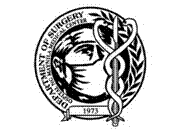
|
JONATHAN MALABANAN M.D. |
|
Surgery Resident Ospital Ng Maynila Medical Center |

|
MEDICAL ANECDOTAL REPORT —————————————————————————————————————————————— |
|
How To Deal With The Morbidity of Other Surgeon (January 2007)
Narration
One afternoon, while on duty at the OPD, a 25-year-old Filipino, male consulted for pain due to laceration on anterior aspect of right leg. He sustained laceration secondary to a vehicular accident which occurred last week. He was sutured at a private institution prior to consultation at Ospital ng Maynila.
Physical examination showed swelling around the laceration site. The border was erythematous with foul smelling discharge coming from the laceration which failed to coaptate. The laceration site was tender and painful on palpation. I asked the patient “Sir, bakit po ninyo dinala sa amin at hindi sa doctor na nagtahi sa kanya?” The patient replied, “Wala na po kaming pera pang- follow up check- up sa doctor sa dating ospital. Yung driver na nakabangga ang gumastos sa E.R dati”.
I explained the condition of the wound to the patient. I decided to release the sutures, drain the foul smelling discharge and evacuate the hematoma. I explained the need to keep the wound open, to complete the antibiotics and to keep the wound clean daily.
Afterwards, the patient asked, “Sa inyo na lang po ba kami babalik, doktor?” I told the patient that it is more appropriate that the surgeon see the wound. But if the patient cannot do follow- up consultation due to financial reasons, he will just have to come back at our out- patient department next week. The patient waved goodbye and said “thank you.”
Insight: (Physical, Psychosocial, Ethical) (Discovery, Stimulus, Reinforcement)
Most of the time, we encounter patients with morbidities who was operated outside the hospital. We tend to remedy the complications done by other surgeons but at the back of our mind, we ask ourselves, should the surgeon be at least aware regarding the outcome of his operation or should we just advice the patient to follow- up at our institution since the management is still the same.
In this situation, I adviced the patient to seek immediate follow- up consult with the attending physician at least once in respect to the surgeon. Follow- up consults will be done here in our out- patient department. One advantage of letting the surgeon know is for the surgeon to avoid future morbidities and at the same time early recognition of surgical complication by the attending surgeon will prevent medico- legal suits. |
|
Home | TOC | My Department | OMMC | Curriculum Vitae | My Reports | My Performance | MAR | Contacts |